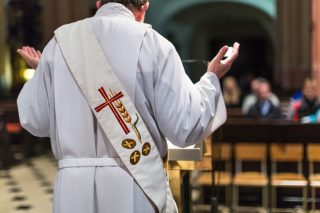The Court of Appeal has refused a “free speech” bid by a Yeppoon parishioner to permit pamphlet distribution criticising the theology being preached by the pastor of his local Wesleyan Methodist Church.

Removed by police on two occasions after being denied entry, Ron Gallagher filed a claim against parish board members requiring he be permitted “to pass freely without let or hindrance into the sanctuary” of their premises and for an order disallowing their “edict of suppression made in disregard of the God-given privilege of freedom of speech”.
Of historical interest was the court ruling that article 9 of the English Bill of Rights of 1688 on which Gallagher relied – that applies in Queensland by virtue of the Imperial Acts Application Act 1984 – contained no speech freedom guarantee as argued.
Such freedom and the limited “implied constitutional right to communicate on government and political matters” recognised by Australia’s High Court were irrelevant, so ruled the court, to his ouster. No one had taken steps to prevent Gallagher’s pamphlet distribution elsewhere, they objected only to him so doing on their own premises.
As a regular member of the church’s congregation (but not a member of the church itself), he was merely a licensee whose right to enter could be revoked – at will – by the property owners or the parish board as the owner’s representative.
And in the case of a place or worship, a person’s right to enter was in any event subject to a legally recognised qualification that he or she must “behave in reasonable conformity with the requirements of the religion in which he was participating”.
Gallagher simply had no legal or equitable right to be on the church’s property for any purpose once informed he was no longer welcome.
The court also noted the somewhat obscure Criminal Code offence of engaging in conduct that “caused disquiet or disturbed” persons assembled for religious worship, was punishable by a $10 fine and in more serious cases, by imprisonment.
Gallagher v McClintock & Ors [2014] QCA 224 Holmes JA and Ann Lyons and Flanagan JJ 05/09/2014





